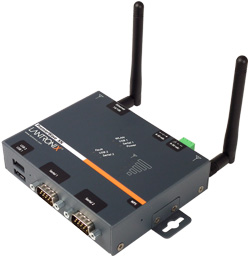A receptionist is a type of secretary who specializes in handling the
flow of people through a business. He or she answers phones and deals
with people who walk into a business for appointments or because they
need various services. The tasks that he or she performs can vary,
depending on his or her job description, but people handling is
generally viewed as the most important part of the job. As you might
imagine, good people skills are a job requirement for people in this
position.
Receptionists control access to executives and other staff, answers questions, schedules appointments, and handles other interpersonal interactions. They is literally the face of the business.
Many spas, doctors offices, salons, and other businesses that provide services to the public typically have a receptionist. In these positions, he or she makes appointments, keeps track of the schedule, keeps staff members updated about their bookings for the day, and handles client records. He or she will also answer questions for people about the services that the business offers, and he or she typically checks people in for appointments and deals with any paperwork which clients may have to fill out. Receptionists are also expected to handle client payments in many cases.
 In an office, a receptionist keeps track of the schedules of various
staff members, sets up meetings within the company and with outsiders,
and answers questions from the public. In many cases, an office is open
to the public, allowing people to simply walk in, in which case the
receptionist needs to be skilled at being a watchdog of the office,
preventing people without appointments from disrupting the flow of the
office schedule. He or she also typically spends a lot of time on the
phone.
In an office, a receptionist keeps track of the schedules of various
staff members, sets up meetings within the company and with outsiders,
and answers questions from the public. In many cases, an office is open
to the public, allowing people to simply walk in, in which case the
receptionist needs to be skilled at being a watchdog of the office,
preventing people without appointments from disrupting the flow of the
office schedule. He or she also typically spends a lot of time on the
phone.
In offices which only network with other businesses, as might be the case with a wholesaler, a receptionist is still a vital member of the team. He or she is expected to be a friendly face for companies which might want to do business, place orders, or cooperate on projects. He or she will manage schedules for the staff, make appointments, schedule meetings, and answer queries from other businesses in the course of a day's work.
Receptionists must be skilled at multitasking and remaining cheerful and courteous at all times, even when extremely frustrated. They must also be good at quickly reading people and their needs, determining, for example, whether someone should really be allowed to meet with a company executive. In addition to being good at managing the public, a receptionist has to be on top of the staff of the business that he or she works for, ensuring that people have the most current information about their schedules.
Receptionists control access to executives and other staff, answers questions, schedules appointments, and handles other interpersonal interactions. They is literally the face of the business.
Many spas, doctors offices, salons, and other businesses that provide services to the public typically have a receptionist. In these positions, he or she makes appointments, keeps track of the schedule, keeps staff members updated about their bookings for the day, and handles client records. He or she will also answer questions for people about the services that the business offers, and he or she typically checks people in for appointments and deals with any paperwork which clients may have to fill out. Receptionists are also expected to handle client payments in many cases.
 In an office, a receptionist keeps track of the schedules of various
staff members, sets up meetings within the company and with outsiders,
and answers questions from the public. In many cases, an office is open
to the public, allowing people to simply walk in, in which case the
receptionist needs to be skilled at being a watchdog of the office,
preventing people without appointments from disrupting the flow of the
office schedule. He or she also typically spends a lot of time on the
phone.
In an office, a receptionist keeps track of the schedules of various
staff members, sets up meetings within the company and with outsiders,
and answers questions from the public. In many cases, an office is open
to the public, allowing people to simply walk in, in which case the
receptionist needs to be skilled at being a watchdog of the office,
preventing people without appointments from disrupting the flow of the
office schedule. He or she also typically spends a lot of time on the
phone.In offices which only network with other businesses, as might be the case with a wholesaler, a receptionist is still a vital member of the team. He or she is expected to be a friendly face for companies which might want to do business, place orders, or cooperate on projects. He or she will manage schedules for the staff, make appointments, schedule meetings, and answer queries from other businesses in the course of a day's work.
Receptionists must be skilled at multitasking and remaining cheerful and courteous at all times, even when extremely frustrated. They must also be good at quickly reading people and their needs, determining, for example, whether someone should really be allowed to meet with a company executive. In addition to being good at managing the public, a receptionist has to be on top of the staff of the business that he or she works for, ensuring that people have the most current information about their schedules.

No comments:
Post a Comment